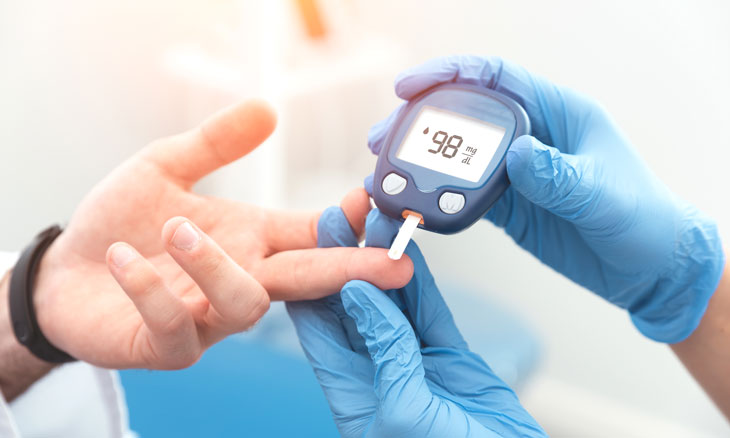
Chill Out! - How to Keep Your Cool with Diabetes
From the saltwater at the beach to the chlorine of the pool, it is easy to get wrapped up in the fun of summer and forget about the littler things that can turn into a big deal; especially when it comes to diabetes. Hot weather can affect blood sugar levels and pose challenges for people with diabetes in several ways, explained Bayhealth Endocrinologist Hira Shakeel, MD. She offers some tips for staying safe this time of year when managing diabetes.
Extreme heat is known to take a toll on our bodies. Individuals with diabetes are particularly prone to the health consequences of the heat because it causes fluctuations in blood sugar, making diabetes harder to control. Extreme heat also triggers excessive sweating which can lead to dehydration and thus, higher blood sugar levels. “When it comes to hydrating properly, limit alcoholic and caffeinated beverages such as coffee,” says Dr. Shakeel.
On hot days, those with diabetes need to drink plenty of water to stay well-hydrated and check their blood sugar more frequently. Taking precautions with supplies and testing kits is equally important.
Dr. Shakeel shares some tips on how to become proactive rather than reactive during the warmer months:
- Never leave your diabetes supplies in a hot car or in direct sunlight. If you’re traveling, pack your insulin in a cooler but don't allow direct contact with the ice pack.
- Physical activities are good for individuals with diabetes, but it’s best to avoid outdoor activities between 10 a.m. and 4 p.m. when the temperature is at its peak. Stay inside in air conditioning during that part of the day.
- Limit caffeine and alcohol because both can cause dehydration and affect blood sugar control.
- If you feel fatigue, or you have nausea, palpitations, lightheadedness, or increased sweating, check your blood sugar as these are symptoms of hypoglycemia. Always carry glucose tablets, juice or glucose gels to your workout to treat yourself immediately for hypoglycemia.
- Avoid damage to your skin by the sun. Apply a broad-spectrum sunscreen, wear protective light clothing and a wide-brimmed hat if you go outside.
- Have a plan in case you lose power and a go-bag ready for emergencies.
Dr. Shakeel sees patients at the Bayhealth Endocrinology, Dover practice. To make an appointment call 302-401-1500 or visit Bayhealth.org/Medical-Group for more information.
